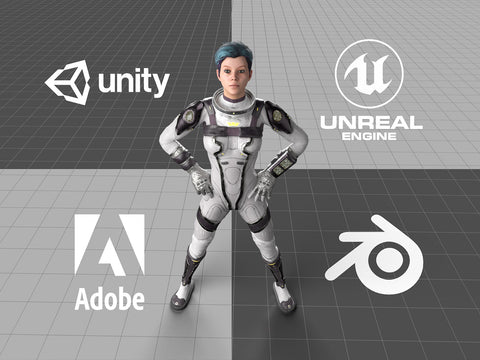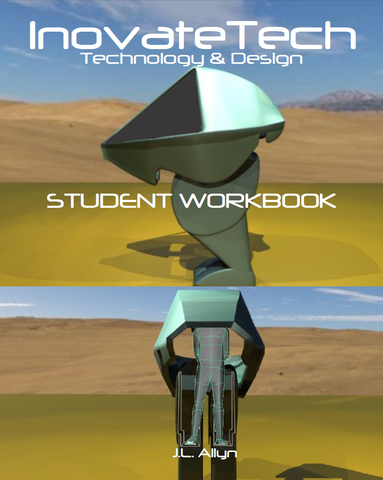Description
Download the free PDF edition of the Amazon book
Did you assume men invented writing, which set off today's tech revolution? If you did, you'd be wrong. Women invented writing 5100 years ago in ancient Egypt.
When women invented civilization, including large-scale markets and large-scale agriculture, women also invented writing to facilitate effective communications between the markets and farms. Writing is coding.
Sign up to be part of this project.
Women's Invention of Writing Launched Today's Tech
When women invented writing, it launched the beginning and tech as we know it today. In fact, if women had not invented writing 5100 years ago, there would be no books, schools or libraries. And there would be no Tesla, Microsoft, Facebook or Google.
Here are some definitions of technology:
"Science or knowledge put into practical use to solve problems or invent useful tools" - YourDictionary
"Technology, the application of scientific knowledge to the practical aims of human life" - Britannica
"The use of science in industry, engineering, etc., to invent useful things or to solve problems" - Merriam-Webster

Sewaswu (Seshat) is the Woman Who Invented Writing
Sewaswu, whom Egyptologists refer to as Seshat (among other spellings) is credited with inventing writing. She also became identified as the developer of accounting, architecture, astronomy, astrology, building, mathematics, engineering and surveying.
With computers playing such a pivotal role in technology today, you might wonder whether writing is the same as coding. If you said yes, you'd be right. Coding is directly descended from the writing Sewaswu invented 5100 years ago in ancient Egypt.
Here's How Writing is Coding
There are more similarities between the two than anyone who does one or the other would think. Here's an interesting Medium article, by The Book Mechanic, comparing writing with coding:
-
You write words in both
Programming: This one is in the “duh” category. For almost any programming language, except you dare to drop down into machine language, which is usually hex or binary, you’re coding in words, usually a form of English.Writing: Articles, books, documentation, etc. you’re also writing words. Of course, you could be writing in any language. -
There is syntax in both
Programming: Just like any language you learn, whether speaking language or programming, you will need to learn the specific syntax for that language.
Writing: All languages you’ll find in the world that people speak and write have their own syntax, maybe unique or maybe very similar to other languages. -
There is a beginning and an end
Programming: Programs must be complete, otherwise they will crash when they are used. You can add more features to a program, but this is like adding more paragraphs to a story.
Writing: If your story is not complete, your readers will let you know in a hurry! You can write a story in a series of books, but sooner or later there better be some resolution (looking at you J.R.R. Martin!). -
Programming: There must be some sort of quality control with programming. Once the application is written, it is passed to a separate team that checks it out for quality and errors. This is called the QA process.
Wting is finished, it is passed to a separate team or person who checks that work for quality and errors. This is called editing. -
Programming: Once the application is finished and has passed all testing and QA, it is delivered to users who then use it.
Writing: Once the work of writing is finished and passes through editing, it is delivered to customers who enjoy reading it and are willing to put up some cash for the pleasure. Ideally.
Another article, on the PrincetonWrites website by Rebecca Sutton Koeser, is apptly entitled, "Coding Is Writing". Rebecca Sutton Koeser is the Lead Developer at Princeton’s Center for Digital Humanities, designing and building customized software in the service of scholarly projects such as the Princeton Prosody Archive and the Shakespeare and Company Project. Trained in both English literature and computer science, she is well positioned to explore the nexus of coding and writing.:
"I read an article years ago comparing writing software to creative writing. The author’s takeaway was that, as with writing, some people will be more gifted than others. As someone interested in both literature and computers, the idea of coding as writing stuck with me – but I would take this one step further. Just as anyone can learn to write, or get better at writing, anyone can learn to code or get better at coding. Like any skill, it may come more easily to some than others, and some people may enjoy it more than others, but that doesn’t mean you can’t do it."
"A lot of the phrases we use to describe writing code are similar to those we use to describe writing. We talk about code being 'readable,' and some programming languages are known for being more readable than others. We 'refactor' code, which is a kind of revision – restructuring or simplifying the code, usually with the goal of making it more efficient or readable while preserving the original logic. There’s a practice called 'code review,' which is akin to editing – reading through to make sure the logic is correct and that the intent is clear. We talk about whether a piece of code is 'elegant,' and, as with writing, shorter code is often better, but also harder to write. Like writing, code can be brief like a short story, or long and complicated like a novel."
And finally, an article simply entitled, "Coding: It's Just Writing", by Jeff Atwood:
"Writing programs that the computer can understand is challenging, to be sure. That's why so few people, in the big scheme of things, become competent programmers. But writing paragraphs and sentences that your fellow humans can understand -- well, that's even more difficult. The longer you write programs and the older you get, eventually you come to realize that in order to truly succeed, you have to write programs that can be understood by both the computer and your fellow programmers."
"Of all the cruel tricks in software engineering, this has to be the cruelest. Most of us entered this field because the machines are so much more logical than people. And yet, even when you're writing code explicitly intended for the machine, you're still writing. For other people. Fallible, flawed, distracted human beings just like you. And that's the truly difficult part."
Therefore, without women inventing writing 5100 years ago, there'd be no coding. No programming. No computers, tablets or smart phones.
A Must-Read
"The Women Who Invented Writing and Ancient Egyptian Civilization" is a must read for anyone in technology or technology development. Do you want your daughters to know women invented writing?
Product Details
Ships from Amazon
Publisher : Independently published (November 15, 2019)
Language: English
Paperback : 128 pages
ISBN-10 : 1708511989
ISBN-13 : 978-1708511982
Item Weight : 9.4 ounces
Dimensions : 8 x 0.29 x 10 inches
Download the free PDF edition of the Amazon book
Sign up to be part of this project.
Watch the Video





